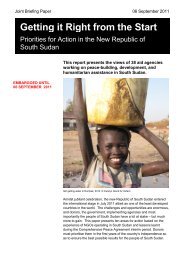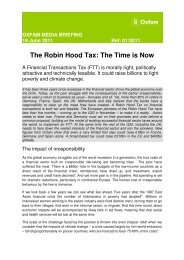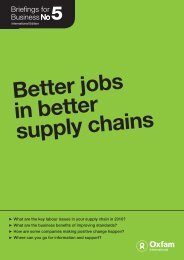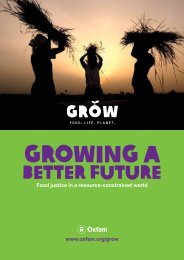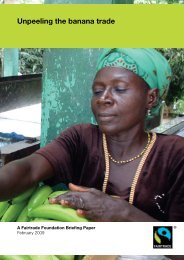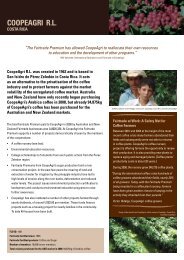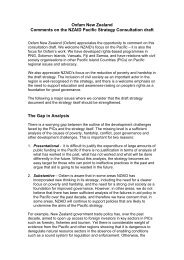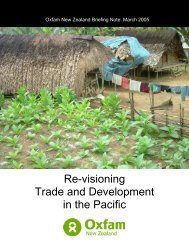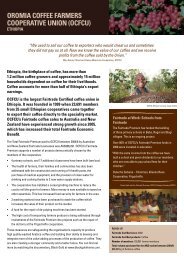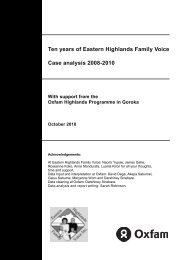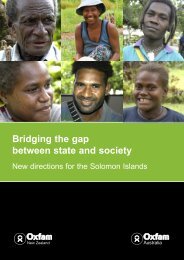Better returns for business.pdf - Oxfam New Zealand
Better returns for business.pdf - Oxfam New Zealand
Better returns for business.pdf - Oxfam New Zealand
- No tags were found...
Create successful ePaper yourself
Turn your PDF publications into a flip-book with our unique Google optimized e-Paper software.
TWENTY EIGHTConsensus around per<strong>for</strong>mance expectationsA recurring message across the workshops andinterviews was that investors are more likelyto take specific social issues into account intheir investment decisions and engagementwhen there is a clear consensus around whatthe expectations of companies are. From aninvestment perspective, the argument is thatthe risks to companies (in terms of damage totheir reputation and consequent impacts oncash flows and profits) are greatest where theyviolate or risk violating: (a) existing legislation(particularly when there is risk of lack ofen<strong>for</strong>cement and implementation); (b) agreedsocietal norms, that is, where their behaviourcan be characterized as ‘unacceptable’ or‘immoral’. In practice, this means that investorswill look out <strong>for</strong> those areas where companiesbreach agreed norms of good practice (orinternational standards) and are more likelyto avoid those companies whose behaviour isor could be seen as unacceptable and so atgreatest risk. From an engagement perspective,the most effective engagement that has beencarried out by investors has been in thosesituations where the expectations of companiesare clearly defined (i.e., it is possible to assesscompliance/non-compliance in objective terms)and where there is a consensus around thestandards of behaviour or per<strong>for</strong>mance that areexpected.In the <strong>Better</strong> Returns workshops and meetings,investors stressed that internationally agreedframeworks on issues such as labour standards,bribery and corruption, cluster bombs andcontroversial weapons have helped them toovercome some of the barriers discussed.They help investors to simplify the processof integrating development issues into theirinvestment analysis by providing clarity andcertainty about the societal expectations ofcompanies, and by establishing benchmarksagainst which to compare companies.Internationally agreed frameworks also helpprovide a basis <strong>for</strong> engagement, wherecompany per<strong>for</strong>mance can be assessed ina structured and objective manner, therebyenabling investors to compare companies’against each other and allowing them toencourage laggards to improve while alsorewarding leaders.INVESTORS ARE MORE LIKELY TO TAKESPECIFIC SOCIAL ISSUES INTO ACCOUNTIN THEIR INVESTMENT DECISIONSAND ENGAGEMENT WHEN THERE IS ACLEAR CONSENSUS AROUND WHAT THEEXPECTATIONS OF COMPANIES ARE.The question of whether such norms andframeworks should be codified in legallybinding instruments was also discussed. Whilethis represents an ideal situation, the realityis that such instruments take a long time tonegotiate and even longer to implement. Therewas a general consensus that, in the absenceof regulation, credible multi-stakeholderprocesses 49 (e.g., the Roundtable onSustainable Palm Oil) have the potential to playan important bridging role in developing the softlaw and normative frameworks from which – asrequired – stronger implementation mechanismscould emerge.



